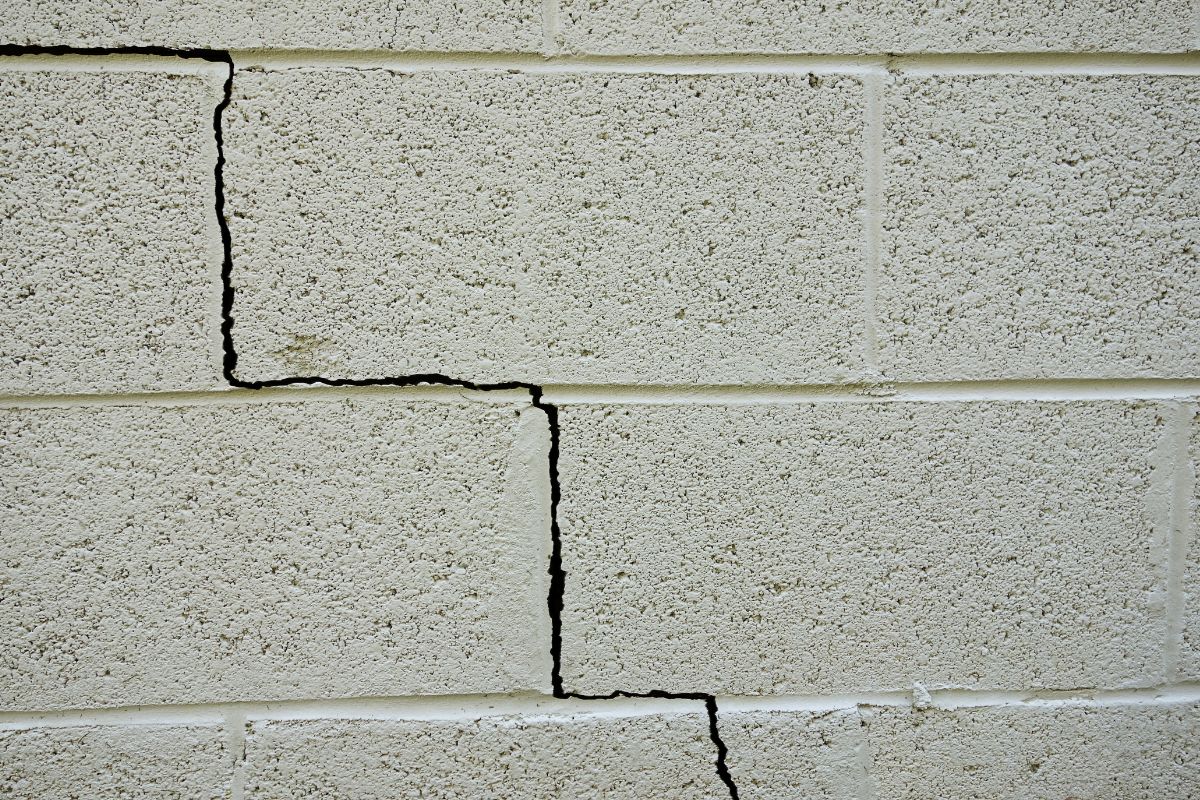When is foundation repair necessary? Although seeing visible damage is an easy answer, foundation issues often creep up with relatively little outward warning until you have a major problem. You don’t want to miss a clear sign your foundation needs repair.
However, some issues can involve a false alarm. Anything that possibly involves home repairs is distressing, and it’s common to overthink and worry needlessly. Read on to learn more about when you do – and don’t, require foundation repair.
What Are Some Signs That You Have Foundation Problems and Signs of a Different Problem?
Some examples of signs that you have foundation problems include:
- Stair step cracks on exterior walls
- Gapping or separation on exterior trim
- Refusing to latch or sticking when they close
- Diagonal cracks on interior walls
- Wood trim or built-in moving
- Movement evidence on indoor fixtures
What Should You Do When Is Foundation Repair Necessary?
Stair step exterior wall cracks are examples of walls being pushed up or down by settlement. If there is any movement on exterior walls, this might create gaps in or cause the exterior trim to separate. This movement can also contribute to door frames being out of joint, making doors refuse to latch or contributing to sticking.
Diagonal cracks on exterior walls are caused by similar circumstances to stair-step cracks. Another sign of movement affecting interior walls is wood-trim or built-ins moving away from the wall. Gaps in tiles or between counters and walls are also important interior signs.
Your foundation may require a relatively quick fix or a more extensive solution depending on the problem. Once you have had your foundation mixed, you can go about repairing any device caused. By holding off on repairs until the foundation is fixed, you can save yourself the trouble of doing the same repairs again.
When is Your Foundation Not the Problem?
Besides knowing when is foundation repair necessary? you will also need to know when you’re dealing with a false alarm or something that can wait. Examples include:
- Ceiling cracks – often caused by sheetrock or framing issues, roof leaks, age or temperature extremes
- Cracks over a garage – excessive masonry weight, rust, or iron intrusion are usually involved
- Hairline cracks in concrete floors – a normal part of the drying process unrelated to the settlement
- Floor tile and grout cracks – in the case of tiles, usually delicate materials sensitive to movement, and in the case of grout, poor-quality work is at the root
- Nail pops – low-quality materials and age are usually to blame
- Seam breaks – usually, this issue is a construction quality or age issue
- Doors sticking on the handle side – this issue usually involves a damaged frame or loose screw
- Normal brick expansion joints – these joints are part of the construction process and no need for concern
- Concrete surface flaws – these usually relate to issues during the installation
If any of these issues are present, that doesn’t mean you can’t have some work done with your foundation anyway. Adding drains or piering can help prevent problems later on. Although these measures aren’t completely fail-safe, they can minimize later damage.
What Should You Do When Foundation Issues Require Care?
If you notice issues indicating foundation problems, there is hope in sight. Repairing your foundation might take a lot of time and is seldom cheap. However, the benefits are worth it.
Repairing your foundation will correct a lot of structural problems in your home. Your house will have better curb appeal, and you might see your home values increase as well.
Olson Foundation Repair: When is Foundation Repair Necessary?
At Olson Foundation Repair, we can handle minor cracks to major repairs. Contact us today if you’ve asked yourself when is foundation repair necessary? And that time is now.

